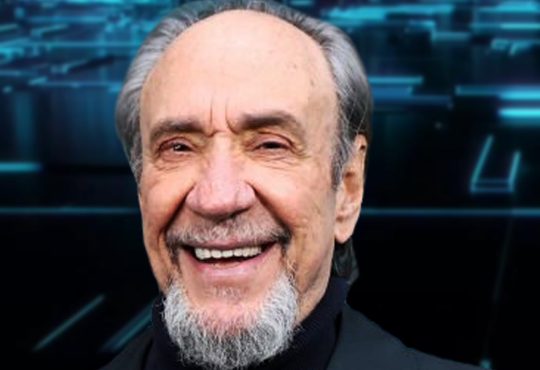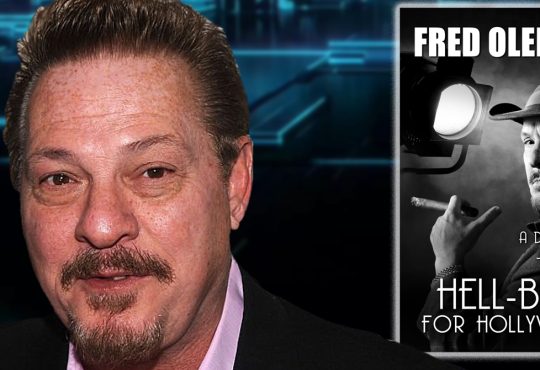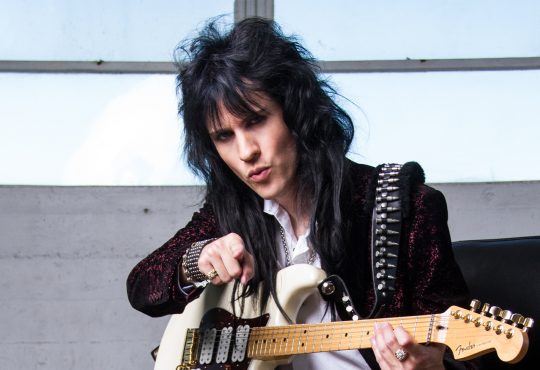‘Loki’ Finale Recap: What’s In a Name?
A review of the Loki season finale “For All Time. Always.” coming up just as soon as I tell you not to kick the door in…
And down the hatch we go again.
The interconnectivity of the Marvel movies and, now, TV series, can be both a feature and a bug. The whole can often feel greater than the sum of the component parts, and there’s real joy to be had from seeing characters and story ideas from one corner of the MCU intermingle with those of another corner. (If you can’t take pleasure in Hulk handing Ant-Man some tacos, friend, then you and I are two very different people.) But with rare exceptions like Black Panther, individual MCU projects are rarely allowed to feel like they exist as entities unto themselves. (Even the relatively self-contained Black Widow spends a lot of time setting up Florence Pugh’s Yelena to take Natasha’s place in future MCU tales.) The two previous Disney+ shows stumbled in their finales for a variety of reasons — WandaVision by going too easy on its heroine, and devoting too much time to dull superhero action; The Falcon and the Winter Soldier by doing almost everything wrong — but an underlying component of both was the requirement to position various characters for future use. The larger needs of the MCU almost always outweigh the narrative needs of any one project, making it more challenging for each of them to live up to their full storytelling potential.
So when Jonathan Majors — who was long ago announced as the time-traveling Marvel villain Kang the Conqueror in the upcoming Ant-Man and the Wasp: Quantumania — popped up here in the Loki finale as the big bad, I was simultaneously thrilled and dismayed. Majors (star of HBO’s gone-too-soon Lovecraft Country) is one of our best young actors, and I’ve loved countless comic-book stories featuring Kang and his many variants, all of whom we’ll discuss in a bit. But only introducing your villain in the conclusion of a six-episode season is bad dramatic structure, and it briefly felt as if everything that had been so special and appealing about Loki was being brushed aside in order to hype up a new bad guy for the big screen. That the episode ended on a cliffhanger — Sylvie has murdered He Who Remains (as Kang is calling himself in this moment); the multiverse has been reborn; Mobius has no idea who Loki is; and the TVA offices are now dotted with Kang statues instead of Time-Keeper ones — could have suggested that this was all one elaborate, frustrating tease for Quantumania.
But in lieu of a mid-credits scene, we were given a James Bond-style “Loki will return in Season 2″ announcement. And if you look at the finale as setup for more Loki, in addition to letting MCU viewers get accustomed to a version of Kang? Well, then this episode plays a bit more like the kind of vintage TV season finales designed to leave their viewers in glorious agony until the next season premiere. Seen in that light, “For All Time. Always.” is a flawed but often fascinating conclusion to just one chapter of the Loki story, rather than the full graphic novel.
Before we get to the details of the episode itself, let’s talk Kang, who is one of the most enduring, and complicated, villains in all of Marvel Comics. He first appeared, sort of, in an early Avengers issue in 1964 as a militaristic conqueror type who used time travel primarily as a means to build armies and find unprotected time periods to invade. But he was in fact the same character as Rama-Tut, a time-traveling Egyptian pharaoh type who first fought the Fantastic Four a year before Kang’s publication debut. And both of them would turn out to be the same as another time traveler, Immortus — who in the comics has periodically worked with and/or for the Time-Keepers — as well as distant relatives of Mr. Fantastic himself, Reed Richards. (And, depending on the era, they were also briefly related to Doctor Doom. Also, at a certain point in the Nineties, Kang and Immortus were split into separate beings, rather than one being destined to eventually age into the other. Like I said, it’s complicated.) Each iteration is different in both temperament and how he uses time travel, with Immortus as the only one who really cares much about time itself as more than a tool to be used to subjugate others.
Do you need to know any of this — some of which He Who Remains alludes to vaguely while detailing his origins to Loki and Sylvie — to fully appreciate and enjoy the finale? Perhaps not. Do you even need to know that Majors is playing the next Ant-Man villain? It’s not wholly required, though without either piece of knowledge, He is just some guy we haven’t met yet, after spending five hours with Loki, Sylvie, Mobius, Ravonna, other variants, etc. Which, again, is not the ideal way to structure a season(*).
(*) Even Frank Morgan had appeared briefly at the start of The Wizard of Oz as Professor Marvel(!), so his late appearance as the title character wasn’t coming wholly out of the blue.
But in many ways, the finale feels very much of a piece with the rest of the season, and particularly with how it leaned so heavily on the talent and charisma of one of its actors to withstand an avalanche of exposition.
In theory, a lot of this episode should be unwatchable. It is a brand-new character to the story, sitting at a desk and talking about who he is, the various conflicts he had with other versions of himself whom we’ve never met, and why the TVA really exists. It is infodump on top of infodump — all telling, barely any showing, outside of the various animated Kangs fighting one another on this one’s desk. This should be even rougher than any of the Loki/Mobius scenes from the first two episodes. At least those were conversations where a character we had pre-existing affection for was an equal participant, where here Loki and Sylvie are mostly just, like us, a confused audience. But Majors’ profoundly weird performance — literally chewing an apple and metaphorically chewing all the scenery in sight — proves an even better complement to the material than Owen Wilson’s surfer philosopher vibe. Every line reading is wildly different from the one before it, with the tone and tenor of Major’s voice shifting along with his physical presence. One minute, he’s a timid nerd, the next he’s adopting a fake English accent to mock our heroes, and the next he’s just over it all. Yet it doesn’t feel inconsistent, or self-indulgent. Majors’ choices not only keep Kang’s monologues way livelier than they have any business being, but underline the two core ideas of this character: He has been around forever, and he has been through more variations than even these two Lokis can fathom. It’s one hell of a debut for a character who, in some form or other, is now going to be a key part of both Quantumania and Loki Season Two.

Jonathan Majors as Kang (a.k.a. He Who Remains)
Marvel Studios
The scenes in Kang’s study, as well as the argument between Mobius and Ravonna back at the TVA, are perhaps even more indebted to Lost than Classic Loki and friends living in an underground bunker. Kang is Jacob, the man behind the curtain who has manipulated all these people into doing his bidding to maintain order in the universe. And, like Jacob, he kept them all a bit too far in the dark, inspiring them to eventually rebel against him and murder him. Sylvie, like Ben Linus, has been stewing in a lifetime of believing that the deity of her universe doesn’t care about her, so she stabs God to death. Though there’s more than a little of Ben in Ravonna, as well, since she realizes she has been lied to for her entire time in the TVA. She responds differently, though, deciding that all these lies had to be for some better purpose, and insisting that free will (another favorite Lost topic) is a luxury best given only to the entity in charge. And, of course, Lost had some of the most famous cliffhangers in television history, though some of them (“We have to go back!”) were better than others (Jack and Locke peering down the hatch).
Loki is the first of the Marvel/Disney+ shows to officially get a second season. Wanda will be in the next Dr. Strange film, but all involved (plus Emmy voters) continue to refer to WandaVision as a limited series. There may be later seasons of TV involving Sam Wilson and Bucky Barnes, but for the moment, Sam is earmarked for a new Captain America movie. So as of now, this is the only one that has to behave like an ongoing show. As a conclusion to a Loki miniseries, this would have been awful and maddening, living down to some of the harsher criticisms the MCU has received as a whole in prioritizing the brand over the storytelling. (Jet Skis were not even mentioned this week, let alone ridden, and a Loki that concludes without putting Mobius and/or Loki on a Jet Ski may as well be pruned from the timeline right now.)
As a conclusion to one season of a series that’s going to be around a little while, it’s still not perfect — even with Majors, Wilson, Gugu Mbatha-Raw, et. al., the exposition and philosophizing is a lot — but it’s satisfying enough for now, and easily the best of this year’s three MCU finales. Kang/Immortus/He Who Has Seventeen Other Nicknames does a lot of the talking, but there’s still plenty of conflict between our two title characters even before they fight each other. And we see that at least one of them genuinely has changed and grown over the course of these six episodes. Sylvie is still someone who cannot trust, but Loki has improbably become someone who can be trusted. He’s not as scarred by Kang’s involvement in his life as Sylvie is, and can recognize that killing him may make things far worse than letting him continue to rule, or letting him (like Jacob) choose them as his successor. But Sylvie’s blinded by revenge, and after a nifty (and not too long, especially relative to the Wanda-Agnes and Vision-Vision battles in that finale) sword fight, she passionately kisses her counterpart — preventing that brief moment on Lamentis from being just a tease — and sends him back to the TVA so she can finish her mission unimpeded. Kang seems almost relieved to have his burden lifted, while Sylvie seems less than satisfied. This is all she has wanted for so long, yet her face suggests it did not live up to her expectations — especially now that she is once again all alone at the end of everything. (What is the last moment in history, if not the apocalypse to end all apocalypses?) And our Loki has lost both the woman he loved and the best friend he just made, since Mobius looks at him like some random analyst, his memories altered by the rebirth of the multiverse in the wake of Kang’s death.
If these shows existed solely to service the movies, then all that was really necessary was the recreation of the multiverse and the introduction of Kang. But for them to work as a long-term tentpole to prop up Disney+ subscriptions, they have to be entertaining on their own, and not just as MCU maintenance vehicles. WandaVision very much was. Falcon and the Winter Soldier occasionally was. Loki was the best of these, and even if the finale faltered in spots, it didn’t diminish the good parts from earlier in a way that both the Wanda and Falcon conclusions did. Between the TVA’s mandate, the return of multiple timelines, and all the Loki variants that come with it, there could be many seasons of storytelling possibility for this creative team. It’s good to know we’ll be getting at least one more.
At one point, Kang tells Loki and Sylvie, “You know you can’t get to the end until you’ve been changed by the journey.” Loki Laufeyson has definitely changed for the better, and maybe the MCU on TV has been similarly altered in the bargain.







